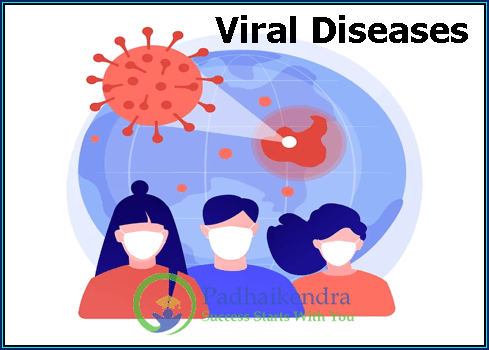- Introduction to Contraception
What is Contraception?
Types of Contraception
Title: Exploring Birth Control: Your Guide to Contraception
Hey there, curious minds! Let’s dive into a topic that concerns many of us – contraception. It’s all about making choices that fit your lifestyle and plans. We’ll start by getting to know what contraception really means and the different ways it can help us take control of our reproductive health.
What is Contraception?
Picture this: You’re on a road trip, and you have a map to guide you, right? Well, think of contraception as your map to navigating your journey of family planning. Contraception simply means methods or techniques that help prevent pregnancy. Yes, it’s like having a reliable co-pilot on your life’s journey, ensuring you reach your destination when you’re ready.
Types of Contraception
Alright, now that we’ve got the idea of what contraception is, let’s peek into the treasure trove of options available. Just like there are different flavors of ice cream, there are different types of contraception. Each type has its own special way of keeping those surprise baby visits at bay. Here are a few to tickle your curiosity:
- Barrier Methods: Imagine putting up a “No Entry” sign for sperm. Barrier methods do just that! They create a wall between sperm and eggs. Condoms and diaphragms are some popular examples of these protectors.
- Hormonal Methods: Think of these as the traffic controllers of your reproductive system. They use hormones to give instructions to your body, like telling it to not release an egg. Birth control pills, patches, and injections belong to this team.
- Intrauterine Devices (IUDs): These are like little helpers that stay in your uterus and prevent fertilization from happening. They come in hormonal and non-hormonal versions, so there’s something for everyone.
- Permanent Methods: These are like one-way tickets – once you take this route, there’s no turning back. Sterilization for both men and women falls under this category.
- Emergency Contraception: Oops, a little accident happened? Emergency contraception is your safety net. It’s like a superhero that swoops in to save the day when you didn’t plan for things to go off track.
- Natural Methods: Here, it’s all about understanding your body’s natural signs and rhythms. Fertility awareness and tracking your menstrual cycle are part of this method.
- Others: There are also some methods that don’t fit neatly into categories. Like spermicides – these little warriors take on the mission of stopping sperm from reaching the egg.
See? There’s a whole menu of choices! The trick is to find the one that feels right for you, considering your lifestyle, preferences, and health needs.
- Understanding Birth Control Pills
What is the Birth Control Pill?
Types of Birth Control Pills
Combination Pills
Extended-Cycle Pills
Progestin-Only Pills (Minipills)
Levonorgestrel and Ulipristal
Title: Birth Control Pills Unveiled: Your Guide to Hormonal Superheroes
Hey, knowledge seekers! Today, we’re stepping into a world where tiny pills have the power to shape your reproductive journey. Buckle up as we embark on a captivating ride to understand birth control pills – those unassuming heroes that give you the reins over when, or if, you want to bring new life into the world.
What is the Birth Control Pill?
Think of the birth control pill as your personal time traveler, taking a sneak peek into the future and saying, “Not today.” These little pills are like secret agents armed with hormones. They have the remarkable ability to tell your body, “Hold off on releasing an egg,” which means pregnancy is not on the agenda. It’s like having your own magician’s hat of reproductive control.
Types of Birth Control Pills
Ah, here’s where the pill world gets fascinating. Just like a toolbox has different tools for different jobs, birth control pills come in various flavors. Let’s peek into this treasure chest:
- Combination Pills: These are like the dynamic duos of the pill world. Imagine Batman and Robin, but with hormones. These pills contain both estrogen and progestin, working together to prevent ovulation, thicken cervical mucus (like a natural barrier), and make your uterine lining less welcoming to a fertilized egg.
- Extended-Cycle Pills: Ever wished you could hit the snooze button on Aunt Flo’s visits? Extended-cycle pills might be your genie in a bottle. These pills let you have fewer periods throughout the year by extending the time between them.
- Progestin-Only Pills (Minipills): If you’re not a fan of estrogen or can’t tolerate it, these pills might be your BFFs. They’re like the solo artists of the pill world, containing only progestin. They work mainly by thickening cervical mucus and sometimes by slowing down the movement of sperm.
- Levonorgestrel and Ulipristal: Imagine having a superhero team-up to prevent an unexpected visitor. Levonorgestrel and ulipristal are emergency contraception pills. They’re the life-savers you turn to when, oops, things didn’t go as planned.
Each type of pill comes with its own set of superpowers and considerations, so it’s all about finding the one that suits your body’s needs and your lifestyle. Consult your healthcare provider, who’s like your sidekick in this decision-making process.
- Effectiveness and Usage of Birth Control Pills
How Effective Are Birth Control Pills?
How Does the Birth Control Pill Work?
When Should I Take Birth Control Pills?
How Soon Does the Pill Work?
What Should I Do if I Miss a Pill?
Title: The Power Play of Birth Control Pills: A Closer Look at Effectiveness and Usage
Hello, seekers of wisdom! Today, let’s embark on a journey through the realm of birth control pills – those little companions that help shape your reproductive path. Get ready to uncover the secrets behind their effectiveness, how they work their magic, and the art of using them like a pro.
How Effective Are Birth Control Pills?
Picture this: a superhero with an almost impeccable track record. Birth control pills are like that hero when it comes to preventing pregnancy – but it’s essential to understand their strengths and weaknesses. When used perfectly, they’re like an impenetrable fortress against pregnancy, but in the real world, a few cracks can appear. So, it’s good to know that their effectiveness depends on consistent and correct use. On average, about 9 out of 100 women may become pregnant in a year if they rely solely on birth control pills.
How Does the Birth Control Pill Work?
Hold on tight, because we’re about to dive into the science! Birth control pills are hormone wizards. Imagine them as little messengers that tell your body, “Hey, let’s skip the whole egg-releasing thing this month.” They do this by using two main methods: they put a “No Entry” sign for sperm by thickening cervical mucus (a protective barrier), and they alter the uterine lining so it’s less welcoming to a fertilized egg. In a nutshell, they’re like bouncers at a club, making sure no uninvited guests get through.
When Should I Take Birth Control Pills?
Timing is everything, isn’t it? Birth control pills follow a schedule that keeps the hormone levels steady and the body on track. Usually, you start your first pill on the first day of your period or on the first Sunday after your period starts. From there, it’s like a daily ritual – taking a pill around the same time every day. It’s like setting an alarm to remind your body of its mission.
How Soon Does the Pill Work?
Patience is key when it comes to the pill’s powers. If you’re expecting immediate results, sorry to say, it doesn’t work like a magic wand. It takes a few days for the hormones to kick in and start their protective dance. So, if you’re just starting out, be prepared to use backup contraception for at least the first week.
What Should I Do if I Miss a Pill?
Oops, life happens! Missing a pill isn’t the end of the world, but it does require some quick thinking. If you realize you’ve missed a pill, take it as soon as you remember. If it’s been a while, you might need to take two pills in a day. The key is not to panic and to follow your pill pack’s instructions or consult your healthcare provider for guidance.
- Benefits and Considerations of Birth Control Pills
Benefits of Taking the Pill
Protection Against STDs
Possible Side Effects
Who Uses Birth Control Pills?
How Do You Get Birth Control Pills?
Cost of Birth Control Pills
Title: Navigating Birth Control Pills: Unveiling the Perks and Points to Ponder
Hello there, curious minds! Today, let’s continue our expedition through the world of birth control pills. We’ll uncover the fantastic perks these little pills offer, talk about their role in guarding against certain health risks, and delve into the realm of side effects, users, accessibility, and costs. So, fasten your seatbelts for this enlightening journey!
Benefits of Taking the Pill
Imagine having your own superhero team by your side – birth control pills can be that team. Aside from their main mission of preventing unplanned pregnancies, these tiny powerhouses bring along a host of benefits. They can help regulate your menstrual cycle, make periods lighter and less painful, and even improve skin conditions like acne. Some users even experience reduced risk of ovarian cysts and endometrial cancer. Talk about perks!
Protection Against STDs
Now, let’s have a heart-to-heart about safety. While birth control pills are excellent at keeping storks away, they’re not the knights in shining armor when it comes to protecting you from sexually transmitted diseases (STDs). Think of them as pregnancy shields, not STD shields. For a safer experience, combining pill use with barrier methods like condoms is a smart move.
Possible Side Effects
Every superhero has a few quirks, right? Birth control pills, while amazing, can have side effects. These aren’t the same for everyone, though – some people breeze through with hardly any, while others might experience changes in mood, weight, or even headaches. The good news is that most side effects tend to be mild and often improve over time. And remember, your healthcare provider is your sidekick here, ready to guide you through any bumps in the road.
Who Uses Birth Control Pills?
Guess what? Birth control pills aren’t just for preventing babies. They’re a versatile tool for women of all walks of life. Whether you’re a student chasing dreams, a professional setting goals, or someone simply wanting to take charge of their reproductive journey, birth control pills offer a tailored solution. They’re like your adaptable companion, suiting your unique needs.
How Do You Get Birth Control Pills?
Getting your hands on birth control pills isn’t rocket science – it’s all about collaboration. Your first step is teaming up with a healthcare provider. They’ll discuss your health history and preferences, and then recommend the best pill for you. You can get these pills at pharmacies, clinics, or even through online platforms, depending on what works best for you.
Cost of Birth Control Pills
Let’s chat about the money matters. The cost of birth control pills can vary. Some insurance plans cover them fully or partially, while others might not. Generic versions tend to be more budget-friendly, so it’s a good idea to explore your options and have a chat with your insurance provider to understand how much (or how little) you’ll need to pay.
- Types, Working Mechanism, and Usage
Types of Birth Control Pills
How They Work
How to Use Birth Control Pills
Effectiveness of Birth Control Pills
Pros and Cons of Birth Control Pills
Missing a Dose: What to Do
Side Effects and Risks
Prescription Requirements
Title: Birth Control Pills Decoded: Unraveling Types, Magic, and Mastering Usage
Greetings, knowledge enthusiasts! Buckle up as we embark on another chapter of birth control pill wisdom. Today, we’re delving into the fascinating world of pill types, how they cast their spell, the art of using them effectively, the secret behind their strength, and even the pros and cons they bring to the table. Let’s dive in, shall we?
Types of Birth Control Pills
Picture a shelf stacked with various flavors of ice cream – birth control pills have their own assortment too! These tiny powerhouses come in a few flavors, or rather, types:
- Combination Pills: These are like a dynamic duo. They bring estrogen and progestin together to prevent ovulation, create a thick mucus wall that sperm can’t easily cross, and make the uterus less cozy for a fertilized egg.
- Progestin-Only Pills (Minipills): These are the solo artists. They contain only progestin and primarily focus on thickening the cervical mucus. A backup plan for those who prefer a non-estrogen route.
- Extended-Cycle Pills: Imagine having fewer “visitor” days on your calendar. Extended-cycle pills allow you to have fewer periods throughout the year by extending the time between them.
- Emergency Contraception Pills: These are like your trusty parachute when life takes an unexpected leap. They’re the heroes you turn to after a mishap to prevent an unplanned pregnancy.
How They Work
Let’s talk about their secret recipe. Birth control pills are hormone messengers. They send signals to your body, telling it to skip releasing an egg and making it harder for sperm to reach that egg. It’s like a team of security guards and puzzle solvers working together to keep any surprise guests at bay.
How to Use Birth Control Pills
Ah, the daily ritual! Taking birth control pills is like feeding your body a small piece of empowerment every day. Set an alarm if you need a nudge and take one at roughly the same time daily. Consistency is key, like watering a plant for it to flourish.
Effectiveness of Birth Control Pills
They’re like superheroes, but even they have their kryptonite. When used perfectly, birth control pills are a fortress of protection. However, in real life, their effectiveness depends on how strictly they’re taken. On average, around 9 out of 100 women might experience a surprise visitor each year if they solely rely on pills.
Pros and Cons of Birth Control Pills
Every adventure comes with its ups and downs. Birth control pills are no exception. The pros include regulated menstrual cycles, lighter periods, and even clearer skin for some. However, there are possible cons like mood swings, weight changes, or minor side effects.
Missing a Dose: What to Do
Whoops, missed a dose? It’s not a crisis! Depending on how far behind you are, either take it as soon as you remember or take two pills the next day. But if you’re ever in doubt, your healthcare provider is your trusty guide.
Side Effects and Risks
Like every hero, birth control pills have their quirks. Possible side effects can include changes in mood, weight, or even headaches. There’s also a rare chance of more serious risks like blood clots. Remember, side effects vary, and your healthcare provider is there to help you navigate them.
Prescription Requirements
For this journey, you need a trusty guide – a healthcare provider. They’ll help you find the right pill for your unique needs and health history. Sometimes, a prescription is needed, so it’s best to team up with them before embarking on your pill adventure.
- Frequently Asked Questions and Conclusion
FAQs About Birth Control Pills
Key Takeaways
Title: Demystifying Birth Control Pills: Your Burning Questions Answered
Hello, knowledge seekers! As we near the end of our birth control pill expedition, it’s time to address some of the most common questions that often buzz around this topic. Get ready for some myth-busting and practical insights as we dive into frequently asked questions and wrap up our journey with some key takeaways.
FAQs About Birth Control Pills
Q1: Can birth control pills protect me from STDs?
A: Nope, they’re superheroes against pregnancy, not against sexually transmitted diseases. For safety on all fronts, combining pills with barrier methods like condoms is the way to go.
Q2: Can I use birth control pills for medical reasons other than preventing pregnancy?
A: Absolutely! Birth control pills aren’t just for stork avoidance. They’re also used to regulate periods, manage hormonal imbalances, and even improve some skin conditions.
Q3: Do I need a prescription for birth control pills?
A: In most cases, yes. A healthcare provider is your guide to finding the right pill for you. They’ll help you navigate the options and ensure you’re on the safest path.
Q4: What do I do if I want to stop taking birth control pills?
A: Just like starting, stopping birth control pills requires a chat with your healthcare provider. They’ll help you transition and guide you through any changes you might experience.
Q5: Can birth control pills affect my future fertility?
A: Nope, they won’t close any doors. Your fertility should return to normal once you stop taking the pills. They’re like a pause button, not a stop button.
Key Takeaways
As our birth control pill journey comes to a close, here are some key takeaways to carry with you:
Empowerment Through Choice: Birth control pills give you the power to take control of your reproductive journey, plan when you want to expand your family, and even address certain health concerns.
Team Up with Healthcare Providers: Your healthcare provider is like your partner in this journey. From picking the right pill to addressing concerns, they’re your go-to source of guidance.
Consistency is Key: Taking birth control pills at roughly the same time every day is the secret to their success. It’s like a daily ritual that empowers you.
Pros and Cons: Birth control pills offer a world of benefits like regulated cycles and clearer skin. While they come with potential side effects, they’re manageable and often improve with time.
Unveil the Myths: Birth control pills aren’t just for preventing pregnancy. They can serve various purposes, from managing medical conditions to improving your quality of life.





